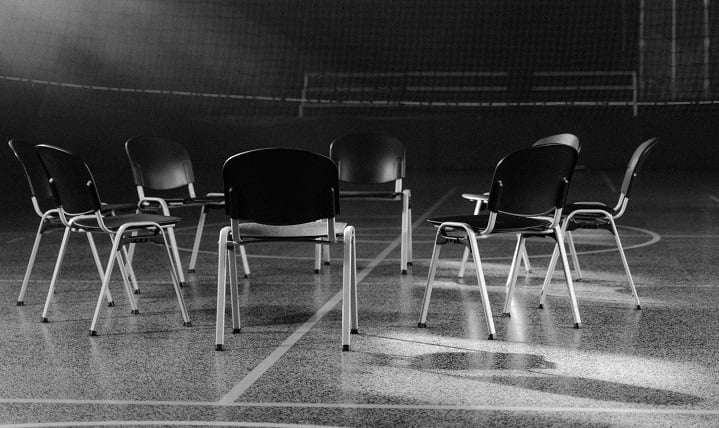Drug and Alcohol Rehab in Merseyside
Quick Links for help with addiction in Merseyside
- What’s the main point of going to rehab in Merseyside?
- Private vs NHS addiction treatment in Merseyside
- The admissions process at rehab in Merseyside
- How much does rehab in Merseyside cost?
- Cocaine rehab in Merseyside
- Alcohol Rehab in Merseyside
- Heroin rehab in Merseyside
- Cannabis rehab in Merseyside
- Contacting Rehab Recovery
Addiction isn’t something that can just be stopped. It’s a disease that dangerously impacts the brain and how it functions.
For example, alcohol can have effects like difficulty walking, blurred vision, slurred speech, slowed reaction times and impaired memory.
The part of the brain involved in decision-making no longer works properly. This affects how people choose to live.
In 2019/20, Merseyside was reported as having the highest rate of drug offences for UK counties. Alcohol consumption is also a serious ongoing concern.
In order for people to be fully supported into making healthier lifestyle choices, addiction has to be treated. It’s a health concern that requires medical attention.
Relevant Drug and Alcohol Statistics in Merseyside
Below, we provide some statistics about alcohol and drug use in Merseyside:
| Drug and Alcohol Statistics in Merseyside | Data | |
|
9.2 | |
| Drug-related hospital admissions per 100,000 people aged between 15 and 24 in St Helens in Merseyside in 2021 | 230 | |
| Deaths from drug poisonings in Cheshire and Merseyside in 2021 | 284 | |
| Deaths from drug use in Cheshire and Merseyside in 2021 | 195 |
If you are from Merseyside and are currently dealing with an addiction problem, you will have options. One of the things that you will definitely want to consider is entering some type of drug and alcohol rehab centre.

Some people will feel resistant to such a solution for a number of reasons, but this type of solution really can be the one that is most likely to lead to the end of addiction in many cases.
Here are just some of the reasons why people in Merseyside might be resistant to recovery and why these reasons do not bear up to much scrutiny:
- Some people will believe that they have not fallen far enough into an addiction to require this type of intensive treatment. The reality is that the individual who is caught in addiction is usually bad at determining the amount of help they need, and will usually grossly underestimate this. It is also the case that rehab can help people at almost all levels of addiction. There is no need for the individual to have reached a particularly low level before they can benefit from this type of program.
- Another reason why people can feel that they do not require this type of addiction help is that they believe they can end their addiction without any help. This may be true in some cases, but it seems to be the exception rather than the rule. It does seem that the majority of people do need some support to end their addiction. The problem is that most substance abusers believe that they are special and that the normal rules do not apply to them – this is often referred to as terminal uniqueness and it is a type of thinking that can get people into real trouble. Those individuals who have tried in the past to quit alone and failed really should try a different path this time.
- There will be people who are resistant to drug and alcohol rehab because they are worried about the stigma involved. This person is worried that by admitting that they need such help they will be harming their own reputation. The reality is that this is unlikely to be the case. The individual may believe that they are able to hide their addiction from most people but this is often not the case. Other people will know what is going on, but they do not want to get involved. They are certainly not going to think any less of the person for getting the type of help they need. If the individual remains trapped in addiction they are going to fall lower and lower into despair and bad behaviour. It is this that is more likely to damage their reputation and not rehab.
- Another reason why people resist rehab is they say that they cannot spare the time or money for treatment. Addiction is a serious problem and not making the time for this treatment is the same as not making time for cancer treatment.
Rehabs are very versatile, treating both behavioural addictions and physical dependences. Substance use disorders can fall into either of these categories.
Private rehabs can also offer person-centred care – fine-tuned your personal needs.
This includes the below addictions, as well as many more:
- Heroin addiction (opioids)
- Ketamine
- Gambling addiction
- Gaming
- Shopping
- Opioid use disorders
- Benzodiazepines
- Alcohol addiction
- Caffeine addiction
- Cannabis addiction
- Hallucinogens
- Inhalants
Get the support you need to beat addiction at a drug and alcohol rehab in Merseyside by calling our team today on 0800 088 66 86
Dual diagnosis and how it can benefit your rehab programme

Many people who enter rehab will be given a dual diagnosis. This is really useful for both the person who receives the diagnosis and the professional team.
A dual diagnosis is when a person has a mental health problem as well as an addiction. It’s understandable that the two often correlate.
According to the NESARC data, 28.6% of people with a current alcohol use disorder diagnosis had at least one personality disorder like bipolar disorder.
People who suffer from depression, for instance, might turn to alcohol to lift their mood or to numb feelings.
Why do people turn to drugs and alcohol in Merseyside?
People often turn to drugs and alcohol in order to manage symptoms around the following:
- Anxiety
- Depression
- Bipolar disorder
- Schizophrenia
- Borderline personality disorder
- Personality disorders
- Eating disorders
- Obsessive Compulsive Disorder
- Post Traumatic Stress Disorder (PTSD)
When this type of situation reoccurs over a length of time, it can create an addiction.
During this stage, if a mental health condition is identified by the psychiatrist then it’s likely that a dual diagnosis will be given.
This will mean that staff are better able to address a person’s treatment needs.
The rehab programme offered will target recovery needs around both addictions as well as a mental health issue.
You can get a psychiatric assessment at your chosen rehab facility, which will be able to determine if you have any mental health disorders.
Tailored psychiatric treatment is available through private rehab, which focuses on your wellbeing and unique needs.
You can get free mental health support from organisations like Mind UK, Young Minds, Rethink Mental Illness, Samaritans and Papyrus.
Learn how a drug and alcohol rehab in Merseyside will work to support your mental health by calling us today on 0800 088 66 86
What’s the main point of going to rehab in Merseyside?

Every person with an addiction will have their own reasons for going to rehab. It has to be pointed out, though, that ultimately, this is a very serious disease. Left untreated there are grave outcomes.
You can read more about the disease of addiction here.
The point of rehabilitation is to achieve sobriety. In terms of the future, it’s to maintain long-term abstinence from alcohol and drugs.
This might seem obvious, but many people with addictions have very ambivalent feelings around substances.
This is understandable, especially where substances have provided a lifelong coping mechanism.
Some will go to rehab hoping that they’ll be able to use drugs and alcohol in a controlled way in the future. Unfortunately, in the case of addiction, this repeatedly leads to relapse.
The best way of managing addiction is through abstinence. Concentrating on what you stand to gain rather than the removal of the substance has to be a focal point.
Most experts have agreed that abstinence is far more effective than harm reduction or moderation management.
Find out for yourself just how effective drug and alcohol rehab n Merseyside can be by calling our team today on 0800 088 66 86
Private vs NHS addiction treatment in Merseyside

Image above: Therapy chairs at a drug and alcohol rehab in Merseyside
Addiction is not considered a ‘choice’ or ‘moral failing’ on behalf of the addiction sufferer – so the focus of rehab is always on treating the disease of addiction.
Due to ongoing government funding cuts over recent years, council-funded rehab services are increasingly under strain. What this means is that there are usually limited spaces for particular services. For example, nearly two-thirds (64%) of people have a wait of more than four weeks for NHS therapy.
There will be some one-to-one input, but there’s not as much availability as when people go private.
Therapy and addiction counselling are, of course, essential in providing a solid foundation for long-term recovery.
Council-funded services do, however, offer regular group sessions such as 12 Step and SMART groups. These are great for those who benefit from ongoing support to remain sober.
Alternative Services in Merseyside
Several free and NHS and NHS Foundation Trust-run recovery services operate across Merseyside, including:
1. Liverpool CAMHS
Address: Merseyside Youth Association, 65-67 Hanover Street, Liverpool, L1 3DY
Telephone: 0151 702 0700
Website: https://www.liverpoolcamhs.com/
2. Pathways To Recovery – Warrington
Address: 14-16 Bold Street, Warrington, WA1 1DL
Telephone: 01925 415 176
Website: http://changegrowlive.org/pathways-to-recovery-warrington/info
3. Knowsley Integrated Recovery
Address: The Peake Centre, 12-14 Chapel Brook, L36 6FH
Telephone: 0845 873 4462
Change Grow Live are a charity offering free support to people affected by drug and alcohol use across the UK.
For help accessing alcohol or drug addiction treatment services in Mersyside through the NHS, callus today on 0800 088 66 86
Are you suited to a residential stay at a drug and alcohol rehab in Merseyside?

Image above: Outside a drug and alcohol rehab in Merseyside
Before you consider seriously whether you want to go to residential rehab, you need to understand whether you’re eligible.
It isn’t for everyone, and some people work better with outpatient treatment.
Many people use and many abuse substances, but this doesn’t mean rehab is for them.
Contact Rehab Recovery for more information as to whether you would benefit from admission to a private rehab clinic.
There are some instances, though, where rehab is essential.
The following circumstances reasons might mean drug and alcohol rehab in Merseyside is essential:
- For those who have a mental health condition along with severe substance use.
- Where people experience suicidal thoughts.
- For those who have no control over substance use.
- Where risky behaviours regularly occur.
- When people use more than one substance to feel an effect.
- Where delirium tremens or shaking occurs between drinking sessions.
- Where Wernicke’s Encephalopathy has developed.
- In the case that people become violent under the influence.
To discuss your own suitability for residential drug and alcohol rehab centres in Merseyside, call us today on 0800 088 66 86
What other addiction treatment services are there in Merseyside?
Professionally supported drug and alcohol rehab is one of the best ways to recover from addiction, but it isn’t for everyone.
In this case, there are other options, such as:
- 12 Step community groups where you can go to Alcoholics Anonymous,Merseyside Narcotics Anonymous Merseyside or Cocaine Anonymous
- Outpatient services within council-funded clinics.
- Outpatient services at a private rehab clinic.
- SMART Recovery groups in Merseyside
- A home detox to wean off alcohol. This is overseen by a doctor.
- Support groups for family members.
Whatever you need to beat addiction -whether a drug and alcohol rehab in Merseyside or one of these excellent alternative services- call our expert team today on 0800 088 66 86
The admissions process at rehab in Merseyside

When you get to your chosen rehab in Merseyside, you’ll meet with a doctor or psychiatrist. The point of this is so that they can assess you and your addiction.
With the results of the assessments, it becomes very clear to the member of staff what treatments you’ll need.
AUDIT assessment in Merseyside
The AUDIT assessment is used to assess people who have drinking problems. It’s a series of ten questions that enable the staff to understand how addiction is impacting you.
A score over 13 suggests that you may have come to rely on alcohol in a seriously unhealthy way.
Topics covered are:
- How often you drink.
- What you act like when you drink.
- Whether drinking is affecting your relationships and how.
- How alcohol is affecting your health and how.
ASAM assessment
The ASAM assessment is used by the rehab team to understand how drug addiction is influencing your life.
It covers a huge range of topics including:
- How your health has been throughout your life.
- What your mental health is like.
- What your daily substance use is like.
- How you manage withdrawal and relapse.
- What your external environment is like.
DSM-5 scale assessment
The DSM-5 assessment enables the professional team to clearly identify how severe your addiction is.
It was developed by experts in the addiction field over a number of years.
This means that addiction and its effects as a whole are considered rather than merely focusing on physical dependency.
Questions revolve around the following:
- Whether you’re able to control how and how much you use.
- Whether you use in dangerous ways.
- If you’re able to maintain daily responsibilities.
- If you’ve built up a tolerance and what withdrawal symptoms you have.
Begin the admissions process at a drug and alcohol rehab in Merseyside by calling us today on 0800 088 66 86
Holding an intervention in Merseyside

It can be really difficult knowing how to support your loved one who has an addiction.
This is especially so where the person with the addiction is in denial of their problem or don’t want to stop using the substance.
In this case, you can stage an intervention.
The CRAFT approach to intervention is a great method to empower the whole family.
Tools are provided which suit the addicted person at the various stages of the addiction cycle. You become equipped to handle conversations to make them more positive.
This creates a more healing environment and positively encourages your loved one towards rehab.
You can also stage an intervention with a professional.
This would be a meeting with an addiction worker or doctor where you both meet with your loved one, express your worries, and run through treatment options.
The main considerations for an intervention are the 5 steps, the 5 A’s: Ask, Advise, Assess, Assist, and Arrange. These ‘A’s’ involve making sure the individual is willing to quit and is onboard with all action.
Make sure that your loved one gets the help they need from a drug and alcohol rehab in Merseyside by calling us today on 0800 088 66 86
How much does rehab in Merseyside cost?

Lots of people immediately write off rehab assuming that it’s too expensive. Actually, there are various options.
Drug and alcohol rehab clinics usually come in at around the following prices:
- A multi-occupancy stay for a 10-day detox is around £2,000-£4,000.
- A single occupancy stays for a 10-day detox is around £3,000-£6,000.
- A multi-occupancy stay for a 28-day stay is from around £6,000.
- A single-occupancy stay for 28 days is around £8,000-£12,000.
- Home detox is around £1,500.
To learn how much your stay at a drug and alcohol rehab in Merseyside is likely to cost, call us today on 0800 088 66 86
Tips on how to choose the best rehab clinic in Merseyside for you
Your tastes, expectations, and treatment needs all must be considered when choosing the best rehab clinic for you.
It can be difficult knowing how to approach the task of finding the right clinic. If you’re feeling overwhelmed, contact Rehab Recovery for advice.
When looking into local rehab clinics, consider the following:
- Find out all the local clinics and also look into rehab clinics in other areas further afield that you might be interested in attending.
- Compare the services of the rehab clinics you’re interested in.
- Call the clinics with a list of questions and see which ones tickle your fancy.
- Find out how successful the clinics have been at treating other people.
- Look up reviews of the clinics and read testimonials.
Make sure that you choose the best rehab clinic in Merseyside for your needs by calling us today on 0800 088 66 86
What happens during detox?

Detox is required for people who have developed a physical dependency. Alcohol detox is very often required for people entering rehab for alcohol addiction.
An alcohol or drug detox lasts between 7-10 days. It’s overseen by a doctor.
During the detox, you’ll be prescribed medication every day to reduce and manage your withdrawal symptoms.
In the case of alcohol, the prescription drug Librium is often used in a tapered way. This means as the days go on, the medication dose reduces.
Other prescription drugs are used during drug detox, depending on the manner of the drug being treated.
It’s highly important that people dependent on alcohol detox under the care of a doctor.
Alcohol withdrawal symptoms can include:
- Sweating, shaking
- Insomnia
- Paranoia
- Mood swings
- Seizures
- Hallucinations
The latter two symptoms can lead to very dangerous and even fatal consequences if the person stops drinking and they’re on their own.
Some people will undergo a supervised home detox where they detox at home under the care of a doctor.
This means they’ll have the required medication each day after contact with the professional. In order for this to happen, it has to be approved by a medical team.
Following a detox of any kind, therapy is recommended.
The most successful way to participate in therapy is through an immersive approach at a private rehab clinic.
Make sure that your detox is safe and effective with the help of an addiction treatment centre in Merseyside. Call us today on 0800 088 66 86
How long does a residential stay at rehab in Merseyside last?

The length of stay at rehab will be different for each individual. For those who require a detox, it will be around 7-10 days.
It is, however, advised that the person stay on for another 2-3 weeks in order to benefit from the rest of the therapies and group sessions on offer.
In general, the majority of people going to rehab stay for around 28 days. This is the most common length for people who are entering rehab for the first time.
Those who have severe mental health problems might stay another additional week.
To find out how long your stay at a drug and alcohol rehab centre in Merseyside is likely to last, give our team a call today on 0800 088 66 86
Cocaine rehab in Merseyside
If you have a serious cocaine addiction, cocaine dependence or crack cocaine problem, a visit to a drug & alcohol rehab in Merseyside will be beneficial. Cocaine has become increasingly popular and easy to get hold of. With this, there are obviously consequences.
Many people use cocaine socially without realising where continued use can end up. Sadly, regular use leads to anxiety, paranoia, insomnia, heart problems, skin sores, and destruction of the nose cartilage.
For people who move onto crack cocaine, there are obviously serious implications for the lungs too.
Cognitive behavioural therapists support people to regain control of compulsive thoughts and behaviours.
This is essential in being able to heal from cocaine addiction. There is also a heavy emphasis placed on reimagining your life in order to direct your focus on healthy activities.
Cocaine detox is not necessary, as cocaine is not physically addictive.
Overcome your cocaine addiction with the help of a drug rehab in Merseyside – call us today on 0800 088 66 86
Alcohol Rehab in Merseyside

If alcohol has become a big part of your life, you may be suffering from alcohol addiction.
Alcohol addiction is unfortunately common, with a study by Robin Room, Thomas Babor and Jürgen Rehm revealing that ‘4% of the global burden of disease is attributable to alcohol’, accounting for almost as much death and disability as tobacco and high blood pressure (hypertension) globally.
You may notice yourself needing more drinks to feel satisfied, or thinking about alcohol an unhealthy amount. You may have found yourself binge drinking – drinking excessive amounts in one go – or you may have slipped into drinking every day, even several times a day. The NHS classes heavy drinking as more than 14 units per week.
It is reported that about 14% of alcoholics develop liver cirrhosis if they continue their drinking habits for over a period of 8 years. It is best to stop drinking today so that you can have the best chance at a full recovery.
When you suddenly stop drinking after drinking alcohol for a prolonged period of time, your body begins a life-threatening process of alcohol withdrawal. You risk dangerous health complications like wernicke encephalopathy and alcoholic hepatitis if you continue to drink more than the recommended limit.
The CAGE questionnaire is an Alcohol Use Disorders Identification Test, which medical professionals use to offer a diagnosis, and see how severe an alcohol addiction is.
During an alcohol use examination, you’ll be asked about your feelings about alcohol, how frequently and how much you drink.
Another such test is the American Society of Addiction Medicine’s Patient Placement Criteria (ASAM Criteria).
There is another addiction screening tool, known as the 4 Ps – standing for Parents, Partner, Past, and Present. To conduct this test, you need to ask:
- Parents: Did any of your parents have problems with alcohol or other drug use?
- Partner: Does your partner have a problem with alcohol or drug use?
- Past: In the past, have you had difficulties in your life because of alcohol or other drugs,
including prescription medications? - Present: In the past month, have you drunk any alcohol or used other drugs?
If your addiction is considered severe, you may need a medically-assisted detox in order to safely remove alcohol from your system. You might find that recognizing you have a drinking problem is the first step to recovery.
If you try to give up alcohol alone (this is called an alcohol detox), you could risk seizures, alcohol withdrawal syndrome, and Delirium Tremens.
Librium is a common medication that eases the symptoms of alcohol withdrawal.
Another medication used to stop drinking is Acamprosate (Campral®), which helps to rebalance the chemicals in the brain that have been damaged by alcohol. The opioid antagonist Naltrexone can also be helpful in cutting alcohol out of your life as it decreases the alcohol you consume.
Alcoholism can also cause anxiety and depression, which means you might be able to get prescribed medications such as an antidepressant like nefazodone, desipramine, or imipramine.
Al-Anon, The National Association for Children of Alcoholics, and Alateen are charities that offer free alcohol support.
If you go on to have CBT therapy for alcohol addiction, a report has shown that the success rate is 83.87%. Therapy after treatment is therefore highly recommended.
As for your body’s recovery after drinking alcohol, damaged organs may regain function partially or might heal altogether, depending on what state they were in and whether you’ve had a relapse or not.
It is incredibly important to begin your recovery now, as being an alcoholic is thought to drastically lower your age of death. The average age of death for an alcoholic is 47–53 years in men and 50–58 years in women.
Heroin rehab in Merseyside

Heroin addiction causes both psychological and physical addiction. This means that both psychotherapies and a physical heroin detox is needed in order to treat both parts.
The detox lasts between 7-10 days. Patients have prescribed medications such as Subutex in order to manage withdrawal.
This eases the discomfort and makes the initial part of “coming off” heroin much easier.
Buprenorphine and methadone are other drugs used for heroin detox, which make heroin withdrawal symptoms more managable.
After detox, people are supported by one-to-one therapies and addiction counselling. Here, they explore the causes and triggers of use.
Heroin use is often linked to people experiencing deep trauma and emotional pain.
These topics will be unravelled in a safe way and techniques will be given to manage responses more effectively.
Overcome your heroin addiction with the help of a drug rehab in Merseyside – call us today on 0800 088 66 86
Cannabis rehab in Merseyside
If you’re concerned about cannabis addiction, there are rehab options for you in Merseyside. Many people don’t realise that cannabis causes paranoia, anxiety, psychosis and severe mood swings.
While medications like Selective Serotonin Reuptake Inhibitors (SSRIs), especially Sertraline, can help ease anxiety symptoms, it is helpful to prevent anxiety and other effects that cannabis might be causing you.
Like other substances, therapies and alternative therapies are essential. Cannabis detox is not needed as this is not a physically addictive substance.
Instead, people will begin to understand what has caused them to turn to cannabis regularly.
There is work done on how to reframe thoughts and feelings about the world, life, and cannabis use.
Group work provides a solid supportive environment for people to understand more how to positively reshape their lives. One-to-ones also provide a secure think about approaching the future differently.
Overcome your cannabis use disorder with the help of a drug rehab in Merseyside – call us today on 0800 088 66 86
What therapies are offered at rehab in Merseyside?

They occur every day and might even occur a few times. Most will be available in both individual therapy or group therapy forms.
The National Institute for Health and Care Excellence produces guidance for healthcare providers that ensures they meet regulated standards. This includes talking therapies, and all other treatments provided at rehab.
Your treatment programme will include some or all of the following:
- Motivational interviewing to help build your self-confidence around quitting and long-term abstinence, often alongside motivational enhancement therapy.
- Brief interventions which provide short sessions offer new ways to think about things.
- Dialectical behaviour therapy offers people with deep emotional trauma a space to process their feelings. It’s also a therapy that supports people to manage their reactions more helpfully to themselves and others.
- Cognitive behavioural therapy is essential in treating all addictions. It focuses on changing the neural pathways in the brain in order to change behaviours.
- Family therapy. If you attend rehab in Merseyside close to your family, they can be invited in for family sessions that rebuild relationships.
- 12 Step groups offer a spiritual approach to healing, harnessing guidance from a higher power. This is an excellent space to share and learn from others in your situation.
- Alternative therapies such as art therapy, music therapy, mindfulness, meditation, yoga, acupuncture, drama therapy, equine therapy and others. These environments offer new ways to explore feelings and engage with your surroundings.
- Acceptance and Commitment Therapy –Tune in to your thoughts, accept your feelings without judgement, and gain more control over your behaviours.
- Rational Emotive Behavior Therapy – Learn to think in a healthier, logical way, in order to better manage your emotions.
- Eye Movement Desensitization and Reprocessing – Follow a series of eye movements that will help you process memories and past traumas.
- Group psychotherapy & group therapy – Discuss your highs and lows with a group of others on the same journey.
- Motivational interviewing – motivational therapy – Gain clarity over your and make changes to your life with this evidenced-based, structured therapy.
Experience any and all of these effective addiction treatments at a drug and alcohol rehab in Merseyside by calling us today on 0800 088 66 86
Relapse and prevention planning

As part of your aftercare plan, you develop a relapse prevention plan with a member of staff. This is imperative so that you’re totally prepared for life outside of rehab. The member of staff is likely to introduce you to HALT.
The HALT method considers how various human states (“hunger”, anger, loneliness, and tiredness) can trigger substance use.
As part of your relapse prevention plan you’ll plan around these triggers.
Therefore, if on returning home, you feel lonely, you might immediately think about turning to drugs.
After rehab, you would look at your relapse prevention plan and might find that you and the member have staff have identified various steps to handle this trigger. On average, according to studies, 23.80% of people relapse after treatment of CBT.
This will help you avoid returning back to old habits. For example if you previously had a relationship with a loved one where you experienced codependency, it may be beneficial for your sobriety to avoid living with this person.
Coping mechanisms and contingency management will give you greater willpower and motivation to continue in recovery.
Sober living houses are a secure place to stay where you can benefit from a community of people just like you, and stay away from alcohol or other drugs.
You might call a particular person or go to a local 12-step group to manage the human state which triggers a craving.
There are many other ways to help you stick to your recovery plan. This includes following the 5 Rules of Recovery that include:
- change your life for the better
- be completely honest with yourself and those around you
- don’t be afraid to ask for help
- practice self-care
- don’t bend the rules
It should not be seen as a sign of weakness if you relapse as recovery takes time. Relapsing is common and occurs between 40% to 60% of adults trying to recover.
Beat addiction once and for all at an alcohol and drug rehab in Merseyside – call us today on 0800 088 66 86
Benefits of entering rehab in Merseyside

It is not very likely that people would be willing to enter rehabilitation unless there were some good reasons for why they should do so. The reality is that entering this type of facility can make all the difference.
Those individuals who have previously tried to end their addiction but failed may find that entering rehab is the thing that makes all the difference.
It might take between 6 months to 5 years or more to reach abstinence and overcome your addiction completely, but it is worth it for a lifetime in recovery.
Some of the benefits the person may receive by choosing this option will include:
- The mere act of choosing rehab greatly increases the individual’s chance of being successful. This is because they will be making it clear that they are ready to do whatever it takes to become sober. This is a significant step in the right direction.
- It can be difficult for people to make it through the early stages of addiction withdrawal, and this is when they are most likely to relapse. This is because the person understands that their uncomfortable symptoms will end if they take alcohol or drugs – it can be very tempting. By entering rehab the individual will be protected and supported during this difficult time. This will greatly increase their chances of being ultimately successful in recovery.
- When people enter this type of facility they will be surrounded by other people who are on a common path. This means that they will enjoy a sense of comradeship and each person will be able to support the other. The importance of this type of collective approach to addiction recovery should not be underestimated – it can make a real difference.
- The individual will have access to all the resources they need in order to build a solid recovery – all of these resources will be available under one roof. One of the most difficult things about trying to get sober alone is getting access to the right resources. Even when these resources are available in the community the individual may not know how to access them – or that they even exist.
- The fact that the person is in rehab means that they are in a therapeutic environment. This means that everything within this environment is there to encourage them to become sober. This can greatly increase the person’s own motivation for recovery.
- The reasons for why the person fell into addiction in the first place are likely to be still there when they become sober. This means that they will be right back where they started. Unless the person has a new way of dealing with these problems, they will be tempted to relapse back to addiction. By entering rehab the individual will have the opportunity to deal with these core issues so that they never need to turn to addiction again.
Get the best possible support for your recovery. Attend a drug and alcohol rehab in Merseyside by giving our team a call on 0800 088 66 86
Contacting Rehab Recovery

For more information on detox and rehab options in Merseyside, contact Rehab Recovery today on 0800 088 66 86.
When you contact us, we shall outline a variety of treatment options that are available to you in Edinburgh. This includes both private and statutory addiction treatments.
Every rehab in England and Wales that we work with is vetted by the Care Quality Commission.
Get help for addiction across Merseyside, including in Liverpool, Sefton, Saint Helens, Knowsley, Birkenhead, Southport, Wallasey, Bootle, Bebington, Huyton, Crosby, Kirkby, Hoylake, Heswall, Formby, Maghull, Newton le Willows, Halewood, Litherland, Haydon, Whiston, Rainhill, Prescot, Eccleston, Rainford and many more.


